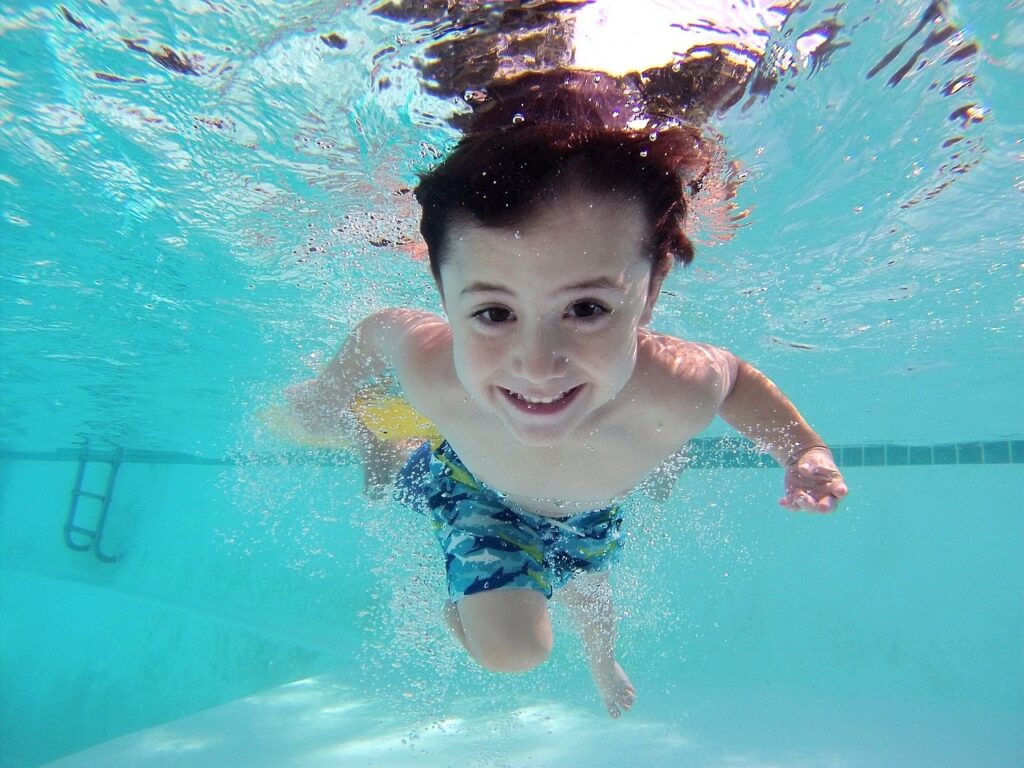Swimming is often seen as a recreational activity enjoyed by people of all ages, but its benefits for toddlers are profound and multifaceted. Many parents may not realize that introducing their little ones to the water can have a significant impact on their health and development. Beyond the obvious physical exercise, swimming offers a wealth of advantages that support toddlers’ growth, well-being, and even social skills. In this blog post, we’ll explore why parents should seriously consider swimming as an integral part of their toddlers’ routines and how it contributes to their overall health.
Physical Benefits
One of the most significant benefits of swimming for toddlers is its positive impact on their physical health. Unlike many land-based exercises, swimming engages nearly every muscle group in the body simultaneously. When looking for lessons for toddlers, you should know that this full-body workout promotes strength, flexibility, and coordination, which are crucial during the early stages of a child’s development. As toddlers practice different strokes and movements, they improve their muscle tone and motor skills, which can translate to better performance in other physical activities as they grow. Additionally, swimming helps in developing balance and spatial awareness, which are essential for their overall physical coordination.
Cardiovascular Health
Cardiovascular health is an essential aspect of overall well-being, and swimming provides an enjoyable way to enhance it. When toddlers engage in swimming, their heart rates increase, which helps in developing their cardiovascular system. The resistance of water adds a natural challenge to their workout, making their heart work harder without the strain often associated with land-based exercises. This kind of low-impact cardiovascular exercise is particularly beneficial for young children, helping to lay the foundation for a healthy heart as they continue to grow. Furthermore, establishing a habit of physical activity early in life can lead to healthier lifestyle choices later on.
Mental and Emotional Well-being
Swimming can have remarkable effects on a toddler’s mental and emotional health. The soothing nature of water has been known to help reduce stress and anxiety, making it an excellent way for toddlers to unwind and relax. The gentle, rhythmic movements involved in swimming can be particularly calming and can help toddlers manage their emotions better. In addition to providing a sense of relaxation, swimming offers opportunities for play and exploration, which can boost mood and promote a sense of joy.

These emotional benefits contribute to a well-rounded approach to a toddler’s overall well-being, helping them feel more balanced and happy.
Social Skills Development
Swimming lessons provide a unique environment for toddlers to develop social skills. Group swimming classes often involve interactions with peers, which can be valuable for learning cooperation, turn-taking, and communication. As toddlers participate in activities with other children, they learn how to follow instructions, work as a team, and build friendships. The structured yet playful nature of swimming lessons encourages social interaction in a fun and supportive setting. These early experiences with socialization can help toddlers develop confidence and improve their ability to interact positively with others in various social situations.
Safety Awareness
One of the most critical reasons for introducing toddlers to swimming is safety. Water safety is a fundamental skill that can significantly reduce the risk of drowning and other water-related accidents. By starting swimming lessons early, toddlers become familiar with the water and learn essential skills such as floating, kicking, and basic strokes. These skills are not only important for safety but also provide a sense of comfort and confidence in and around water. As toddlers become more skilled swimmers, they are better equipped to handle water-related situations safely, which is a crucial aspect of parenting and ensuring their well-being.
Cognitive Development
Swimming is not just beneficial for physical and emotional health; it also has positive effects on cognitive development. The process of learning to swim involves understanding complex movements, following instructions, and solving problems, all of which stimulate brain development. As toddlers practice coordination and timing in the water, they enhance their cognitive abilities such as concentration, memory, and spatial reasoning.

The engagement required in swimming helps improve focus and mental acuity, which can positively impact other areas of learning and development as toddlers grow.
Fostering a Lifelong Love for Physical Activity
Introducing toddlers to swimming can also help foster a lifelong appreciation for physical activity. By making exercise enjoyable and accessible, parents can help their children develop a positive attitude towards staying active. Swimming, with its playful nature and social aspects, is often perceived as a fun activity rather than a chore. This positive association can encourage toddlers to continue engaging in physical activities as they grow older. Establishing these healthy habits early on can contribute to a more active lifestyle throughout their lives, supporting long-term health and well-being.
Incorporating swimming into a toddler’s routine offers a holistic approach to health and development. From enhancing physical strength and cardiovascular health to improving mental well-being and social skills, the benefits of swimming are extensive. Furthermore, early exposure to water safety and cognitive stimulation supports a well-rounded growth experience.
By considering swimming as a valuable component of their child’s daily life, parents can provide their toddlers with a range of positive outcomes that contribute to their overall health and happiness. Embracing swimming as an activity for toddlers not only benefits their immediate well-being but also sets the stage for a lifetime of healthy, active living.
